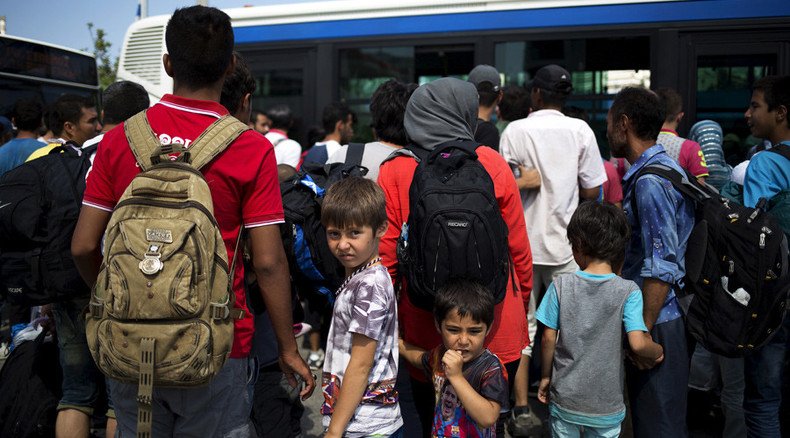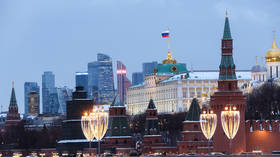In time of crisis, the world needs to unite for peace

Nearly one in every hundred people on Earth today has been forced to flee their home in search of safety elsewhere. The vast majority are running from entirely man-made disasters that have unfolded under the watch of an increasingly lethargic UN Security Council.
According to the UN’s own High Commissioner for Refugees nearly ten million people have been displaced by the conflict in Syria, while four million left Iraq and Libya during the recent wars there. Added to that are the hundreds of thousands on the move from Yemen, the Central African Republic, the Horn of Africa, Sudan, and the other insalubrious destinations this earth has to offer.
The vast majority wind up in neighboring countries. Many don’t want to permanently leave their country of origin, and so try to stay close by. Others just don’t have the resources to get beyond the first reasonably safe ground. So while much has been made of ‘the migrant crisis’ in Europe, its full dimensions haven’t really been felt here. The vast majority (6.5 million) of displaced Syrians, for example, are still in Syria, with a further 3 million in neighboring countries.
By February of this year, there were over 600,000 Syrian refugees in Jordan alone and 1.2 million in tiny Lebanon. By comparison, so far only about 300,000 people have entered the EU in 2015 with the intention of settling there, and many of those who have recently crossed the EU border are from closer to home than one might think. In the first quarter of 2015, the most likely country of origin for an asylum-seeker in the EU was actually Kosovo with close to 49,000 applications. Those applying for asylum from the Balkans are unlikely to receive it, while many of those coming from further afield are only granted authorization to stay on humanitarian grounds or subsidiary protection.
READ MORE: Mass migration: Destroyer of empires and super powers
In 2014, over half of all asylum applications in Europe were rejected at first instance, with nearly half of the remainder being granted lesser forms of protection than refugee status. The EU isn’t known as ‘Fortress Europe’ for nothing.
These less-than-alarming statistics notwithstanding, the response in Europe to increasing immigration pressures has been one of blind panic that fails to consider the true reasons behind why so many people are desperate to get in in the first place. While Continental Europe attempts to hoist up the drawbridge (Denmark is planning a deterrent information campaign, Slovakia only wants to take ‘Christians’, and Hungary is trying to build a giant fence to keep would-be immigrants at bay), the British press has hit a new low in the number of pages devoted to characterizing refugees as some kind of ill-understood annoyance, intent on interrupting the venerated British holiday by being run over in the Eurotunnel.
It’s the old shoulder-shrug, ‘things-just-happen’, ‘we have to protect our own’ mentality that gets trotted out whenever a situation could be easily fixed, but the powers that be just don’t want to be bothered.
Because, let’s not forget who’s running this world, exactly why so many people suddenly dropped everything and ran for the hills, and what we have - for years - failed to do about it.
LISTEN MORE:
Behind the openly discriminatory policies of countries like Slovakia there seems to lurk a deep-seated fear that people coming to Europe might somehow eventually change European culture, that what it means ‘to be European’ may not be exactly what it was before. There’s a lot wrong with that mind-set, but leaving that aside, I think it’s fair to say that whatever generational drift European culture may or may not experience, I doubt it will compare to just how much we’ve changed the places that people who wish to live in Europe have often come from.
READ MORE: One way ticket? Macedonia lets thousands of migrants through to EU amid bloc's crisis
Even leaving the State colonization of the past and industrial colonization of the present aside, we’ve gone on a bit of a redecorating spree over the past decade, with military interventions in Afghanistan, Iraq, Libya and (indirectly) Syria. These interventions lacked any clear objective beyond getting rid of the person hitherto in charge of the country (Hussein, Gaddafi, Assad) and were characterized by a complete lack of any sense of responsibility towards the inhabitants of those nations. It was a laissez-faire intervention to complement laissez-faire economics. In two of the four cases (Iraq and Syria), involvement has often bypassed the Security Council, meaning that even the rudimentary accountability engendered by powerful States trying to dig dirt on each other, didn’t come into play.
That the liberal use of violence and the increasing lack of consensus on the Security Council were not conducive to global stability was, of course, obvious from the beginning. “You think democracy will come to Iraq on a B52 or on the back of a tank?” Arab League General Secretary Amre Moussa incredulously asked during the first days of the Second Iraq War, apparently unable to believe his ears. Even nations like Slovakia that originally supported the Iraq War, soon saw the error of their ways. In 2006, Slovakia’s Prime Minister Robert Fico, stated that: “The war in Iraq is unbelievably unjust and wrong… [t]he entry of foreign armies into Iraq has caused huge tensions. To speak about any democracy in Iraq is a fantasy… [t]he security situation is catastrophic... and if somebody wants to say today that the situation there has improved, it would be a lie.”
Eight years later, ISIS has proven those statements even more correct than they were at the time, but across the board there still seems to be little sense of responsibility for the damage done in that war and in the ones that followed.
So, the question, as always, is how we could possibly get things back on track.
First of all, Europeans could take a bit of a look in the mirror and acknowledge that they are partially responsible, some through active participation and others through long-term neglect, of making ‘migrants’ desperate to leave their homes in the first place. A bit more compassion and perspective is definitely called for here, along with the understanding that for a Continent with an ageing population, mass migration is not necessarily a long-term ‘crisis’ for those already here.
It is, however, quite the crisis for those forced to leave their own nations with little more than the clothes on their back. And as long as civil war rages in Syria and Libya with ISIS tearing around into the mix that is exactly what is going to happen to millions of people. So while it is nice to be nice, it doesn’t solve the underlying problem and still leaves people in a tragically vulnerable situation.
On a more formal level, the Security Council is supposed to stamp out any conflict that threatens international peace and security, but thanks to a deep schism between its Western and Eastern wings, it’s reached deadlock. The oft-made comparison to the Cold War is apt, because then, as now, the Security Council was virtually paralyzed. And due to this paralysis, the international community developed a Plan B for dealing with urgent threats to peace and security.
This occurred in the form of a 1950 General Assembly resolution called ‘Uniting for Peace’. Uniting for Peace basically states that if the Security Council is so divided that it is unable “to exercise its primary responsibility for the maintenance of international peace and security” that the General Assembly (a UN body where all States have equal voting rights) can call an emergency session and take control of the matter. That can include taking any action up to and including the use of force.
Originally a US-led gambit for bypassing the Soviet veto during the Korean War, both ‘sides’ in the Cold War sporadically used Uniting for Peace to try to force action on issues important to them.
60,000-migrant burden: EU leaders agree to share, but still don’t know how to go about it http://t.co/q4aos4GqvIpic.twitter.com/BuxVmwTXs1
— RT (@RT_com) June 26, 2015Perhaps the time has come to do so again.
Admittedly, Uniting for Peace’s track record isn’t the most confidence-inspiring – its 10th ‘emergency session’ on Palestine, for example, has been ongoing since 1997 – and while regional powers like Nigeria and India have gained a lot of experience with peacekeeping, the kind of chaos that most refugees are fleeing from is of such a magnitude that it is hard to imagine any long-term stabilization without the involvement of at least one major power. So even if the General Assembly could reach agreement on how to resolve these conflicts through a resolution under Uniting for Peace, transforming that into reality on the ground still seems like a long shot.
However, Uniting for Peace could still prove useful in galvanizing the Security Council out of its lethargy. There is one thing that the Council’s five permanent members agree on and that is that the world is their oyster. If the General Assembly were to make a serious push to seize control of conflict situations, the P-5 would see this as a usurpation and potentially dangerous precedent. Ironically, a General Assembly acting under Uniting for Peace, may prompt the P-5 to remember just how ‘united’ they are on certain points and that they can’t take their own privilege for granted.
And if it doesn’t, perhaps the time has come to deal with peace and security issues in a more equitable manner through the General Assembly. It’s a nerve-rattling possibility, but a world where millions are being forced from their homes and ISIS roams free isn’t exactly a comforting prospect either.
European nations hold more than 30 seats in the General Assembly and have the resources to mobilize others to their cause. Instead of hand-wringing over the fact that refugees exist or, worse, demonizing them, they could put their time to better use by using Uniting for Peace to pressure the Security Council to overcome its divisions and start doing its job of making the world a safer place.
The statements, views and opinions expressed in this column are solely those of the author and do not necessarily represent those of RT.
LISTEN MORE:
The statements, views and opinions expressed in this column are solely those of the author and do not necessarily represent those of RT.













